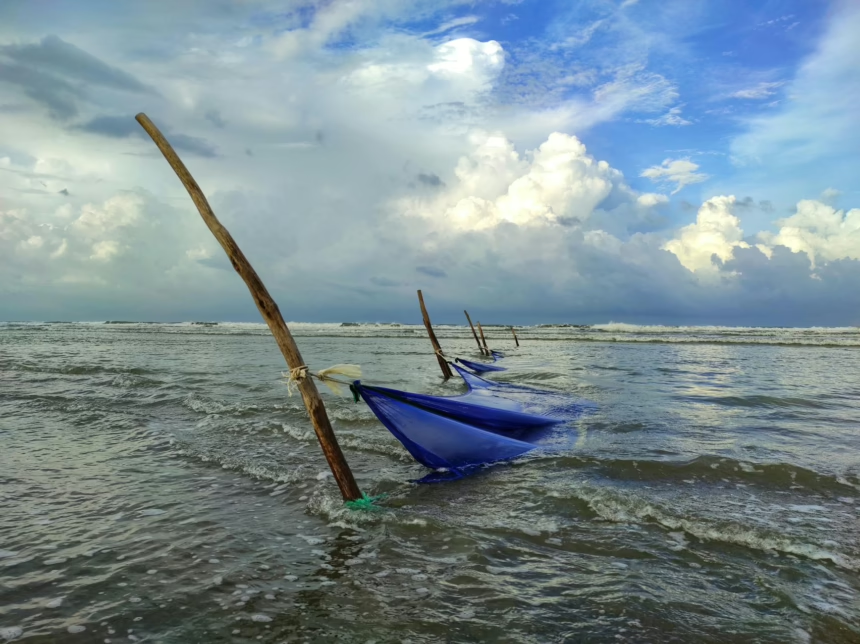What the Latest Research Reveals About Our Oceans’ Future
The economic landscape of our planet’s oceans is a complex and ever-shifting terrain. From sustainable fisheries to the burgeoning blue economy, understanding the forces at play is crucial for policymakers, industry leaders, and citizens alike. A recent publication from The University of Chicago Press offers a valuable glimpse into these dynamics. The July 2025 issue of Marine Resource Economics, specifically Volume 40, Issue 3, promises to shed light on critical research shaping how we manage and utilize our invaluable marine resources.
Unpacking the Latest Scholarship on Marine Resource Management
The core of this latest issue, as indicated by its table of contents, delves into a range of topics central to marine resource economics. While the specific articles require individual examination, the journal’s established reputation suggests a focus on rigorous, data-driven analysis. Readers can anticipate explorations into the economic implications of fisheries management, the efficiency of resource allocation, and the impact of environmental changes on marine-dependent economies. This research is vital for informing policy decisions that aim to balance economic growth with the long-term health of our marine ecosystems.
The Economic Pillars of Sustainable Fisheries
One of the perennial and most significant areas within marine resource economics is fisheries. The sustainability of global fish stocks directly impacts food security for millions and supports substantial economic activity. Research in this field often grapples with issues such as setting appropriate catch limits, combating illegal, unreported, and unregulated (IUU) fishing, and understanding the economic incentives that drive fishing practices. The articles within this issue likely offer updated models and empirical studies to help refine these approaches, providing evidence-based recommendations for more effective governance.
The Expanding Blue Economy: Opportunities and Challenges
Beyond traditional fisheries, the concept of the “blue economy” is gaining prominence. This encompasses a broader range of marine-based economic activities, including renewable energy, marine biotechnology, sustainable tourism, and shipping. As these sectors grow, so too do the economic and environmental questions surrounding them. The research presented in Marine Resource Economics may explore the potential for innovation in these areas, while also highlighting the need for careful planning to avoid new forms of resource depletion or pollution. Balancing the drive for economic expansion with the imperative of ocean conservation is a central theme that these studies will undoubtedly address.
Environmental Shocks and Economic Resilience
Climate change and other environmental stressors pose significant threats to marine resources. Rising ocean temperatures, acidification, and altered current patterns can disrupt ecosystems, impacting everything from fish migration to the viability of aquaculture. The economic consequences of these environmental shifts are profound. Research in this journal is likely to analyze the economic vulnerabilities of marine-dependent communities and industries, and to explore strategies for building resilience. This could involve examining the effectiveness of adaptation measures, the economic costs of inaction, and the potential for new technologies to mitigate impacts.
Tradeoffs in Marine Resource Utilization
The management of marine resources is inherently about navigating tradeoffs. For example, decisions about where to establish marine protected areas often involve weighing conservation benefits against potential impacts on fishing or other economic activities. Similarly, the development of offshore energy infrastructure might offer economic gains but could also affect marine biodiversity or traditional livelihoods. The scholarly articles in Marine Resource Economics are expected to provide rigorous economic frameworks for analyzing these complex tradeoffs, offering quantitative assessments to guide decision-making. Understanding these compromises is essential for achieving equitable and sustainable outcomes.
Looking Ahead: Key Areas for Watchful Observation
As we look to the future, several areas within marine resource economics warrant close attention. The ongoing debate surrounding deep-sea mining, for instance, presents a critical junction where economic interests meet significant environmental unknowns. The development of effective governance mechanisms for novel marine technologies and industries will also be paramount. Furthermore, understanding the global economic implications of shifts in marine resource availability, particularly in the context of changing geopolitical landscapes, will be increasingly important.
Practical Considerations for Stakeholders
For those involved in industries reliant on marine resources, or for policymakers tasked with their stewardship, staying informed about the latest research is not merely academic; it is a practical necessity. The economic models and empirical findings presented in journals like Marine Resource Economics can inform business strategies, investment decisions, and regulatory frameworks. Engaging with this research can help anticipate future challenges, identify opportunities for sustainable growth, and contribute to more robust and resilient marine economies. It is a call for informed action based on sound economic principles and an understanding of ecological realities.
Key Takeaways from Emerging Marine Economics Research
- The latest research in Marine Resource Economics addresses the complex economic dimensions of fisheries management and sustainable resource allocation.
- The expanding blue economy presents new economic opportunities alongside the need for careful environmental consideration and planning.
- Understanding the economic impacts of environmental change, such as climate change, is critical for building resilience in marine-dependent sectors.
- Navigating tradeoffs between economic development and conservation goals requires robust economic analysis and evidence-based decision-making.
- Emerging areas like deep-sea mining and novel marine technologies demand proactive economic and policy engagement.
A Call for Informed Stewardship of Our Oceans
The health and productivity of our oceans are inextricably linked to our economic well-being. The research published in leading journals like Marine Resource Economics provides the intellectual foundation for making sound decisions that benefit both present and future generations. We encourage readers, from industry professionals to concerned citizens, to explore these findings and engage in constructive dialogue about the responsible stewardship of our planet’s most vital resource.
References
- The University of Chicago Press: Marine Resource Economics: Table of Contents – https://www.journals.uchicago.edu/toc/mre/40/3


